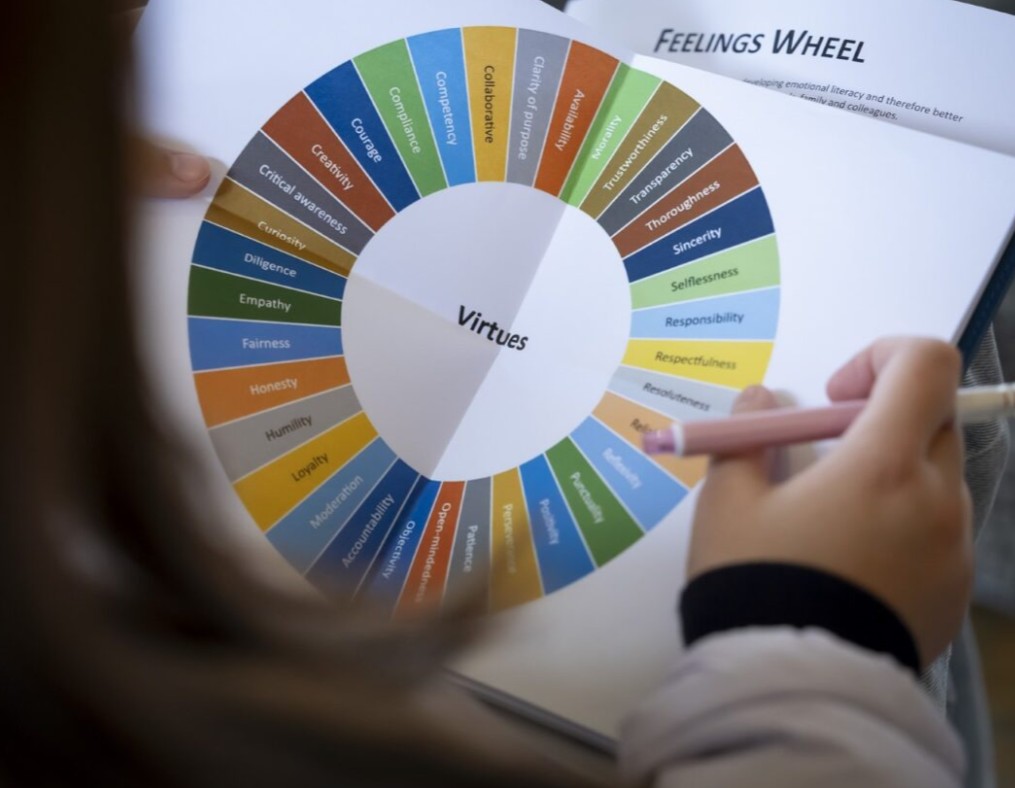
A staggering 80% of Australian teens feel pressure to present a perfect version of themselves online, while 42% have experienced some form of online hate or harassment, research from the eSafety Commissioner shows.
Meanwhile, the rise of generative AI tools like ChatGPT has raised questions about authenticity, academic integrity, and the erosion of critical thinking.
Young people are also facing tough ethical dilemmas – often without the tools to navigate them. Yet they’re not just victims. Today’s youth are values-driven, critical of flawed systems and determined to drive change.
Recognising this, independent girls’ school, St Catherine’s School has embarked on a national first, partnering with Cranlana Centre for Ethical Leadership – renowned for shaping the moral compass of Australia’s top decision-makers – to deliver a comprehensive ethics program to its year 9 students in 2025.
This groundbreaking program will see Cranlana’s executive-level ethics curriculum – popular among senior execs, judges and policymakers—embedded in the classroom.
Helping young people act on their values under pressure
The initiative arrives amid growing concern over how well Australia’s education system is preparing young people for the immense ethical and social challenges of a world shaped by artificial intelligence, social media, and climate change.
“Today’s teenagers face dilemmas that most adults weren’t ready for until their 30s,” Matt Finnis, CEO, Cranlana Centre for Ethical Leadership, told The Educator.
“We can’t protect them from these challenges, but we can give our future leaders the ethical framework to act on their values under pressure.”
The partnership marks a bold shift in how ethical development is addressed within Australian education by responding to a growing demand for schools to not only develop academic performance but also cultivate citizens capable of the critical thinking and moral courage required to navigate a fractured, fast-moving world.
The program will develop students’ capacity for ethical thinking and moral reasoning at a crucial stage in their development. It consists of an intensive two-week residential in Narmbool, along with bridging and capstone elements across the year that connect timeless philosophical wisdom with real-world application.
“Rather than a one-off seminar or values week, the program will embed ethical decision-making and leadership into a core part of students’ learning,” Finnis said.
“It’s not about telling them what to think or how to behave, it’s about helping them develop the tools to think ethically, under pressure, and with others in mind.”
Indeed, Australia is no stranger to public debates over the ethical and psychological pressures facing young people. In recent months, national headlines have spotlighted everything from algorithmic decision-making and deepfakes, to the mental health toll of social media.
Giving young people hope for the future
St Catherine’s and Cranlana hope the partnership will serve as a model for other schools across the country, proactively equipping Australia’s youth with moral courage and the ability to make ethical decisions in a world where it will most certainly be asked of them.
“This is ultimately about making space—physically and symbolically—for the young women of St Catherine’s to engage with fundamental questions of individual and collective goodness, moving beyond external pressures to explore deeper truths about themselves and their place in the world,” Natalie Charles, Principal at St Catherine’s told The Educator.
“We want our students to leave us feeling optimistic about the future and their capacity to contribute in ways that ultimately enrich the very fabric of society at a time when the pursuit of truth, beauty and goodness has never been more pressing.”

